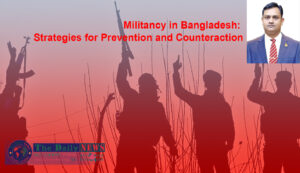
Student of the Shahjalal University of Science and Technology on February 12 called off their protests, which resulted from a trifling affair on the campus on January 13 that could have been resolved that time with a bit of judiciousness, after the vice-chancellor formally had offered apologies for the police attacks on the protesters that took place on January 16 and the education minister had given an assurance of taking up their demands for the resignation of the vice-chancellor with the chancellor. Some of the students went on hunger strike earlier on January 19 and they ended their hunger strike on January 26 after an intervention by a former teacher of the university whom the government sent to the students. But the episode that ended the protests has brought to the fore a few issues to ponder over. While the vice-chancellor, as the custodian of the seat of higher learning, has failed to show his ability at administration and management of troubling issues, he has taken 27 days to offer apologies for the police attacks on the students. But what makes it a curious case is that he has also thanked the law enforcement agencies who attacked the students, cutting both ways.
In the same vein, he has, as media reports say, extended his gratitude and appreciation to central and local leaders of the ruling Awami League, creating the scope for speculation whether the ruling party leaders, central and local, have had any role in the whole of the episode. The proposition can easily be construed as having lent a partisan look to the incident, presumably against the students. He has in the same statement expressed his gratitude and appreciation to various intelligence agencies, who are supposed to have no role to play in the incident. If his expressing gratitude to all of the Awami League leaders, the law enforcement agencies and intelligence agencies is meant to acknowledge what they may have probably done in the student protests, the affair against the students appears to be a partisan orchestration, which is undesirable. And, finally, it is to see whether there has been any intimidation that prompted the students, who were resolute in the demand for the resignation of the vice-chancellor and, even, went on hunger strike to press home the demand, to call off their protests. All this leads to the speculation that the vice-chancellor of the university may have embraced a partisan scheme to cling on to his position even after his gross failures in managing an internal affair of the university.
In view of the imbroglio that the vice-chancellor led the university into, resulting in a closure of the institution, bringing down its dignity and causing harm to the academic and personal life of the students and in view of the way the episode ended, it is imperative that he should own up to his failures and step down to save the institution any further ignominy. It is time that higher authorities looked into such issues.







